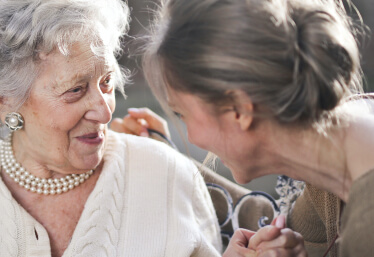Dignified care for those with memory loss
The HillView Dementia Care team comprises carefully selected, highly qualified and regularly trained staff who are loyal and genuinely passionate about caring for others. They form strong bonds with our residents and take a very respectful and personalised approach to care. Their clear focus is on what’s best for each individual. With your help, our team gain an understanding of each residents’ life experiences and interests. This helps us to care for them in the best possible way. We understand how challenging this time can be for you and your loved one. Our care team help families to understand dementia and enjoy quality time with their loved one.
-
Each room enjoys a private ensuite
-
Plenty of lovely garden areas to enjoy
-
Individually controlled air conditioning
-
High security
-
Hair and beauty services available on-site
-
Quality medical team
-
Cafe on site in Merrimac
-
Views or gardens from most rooms
-
Daily housekeeping
-
Lifestyle activities




